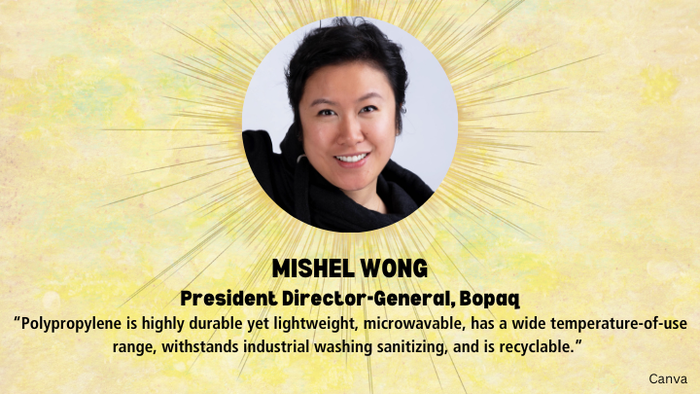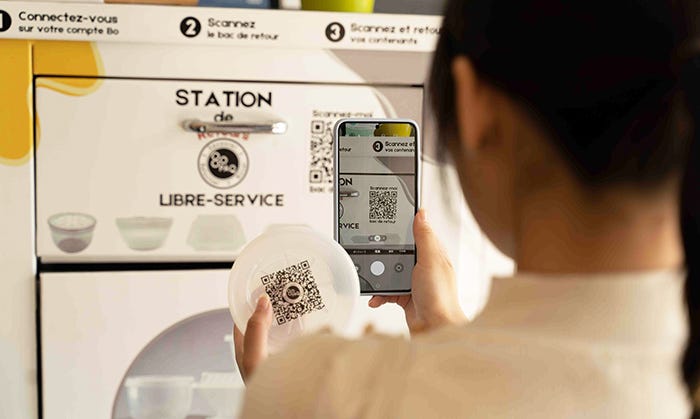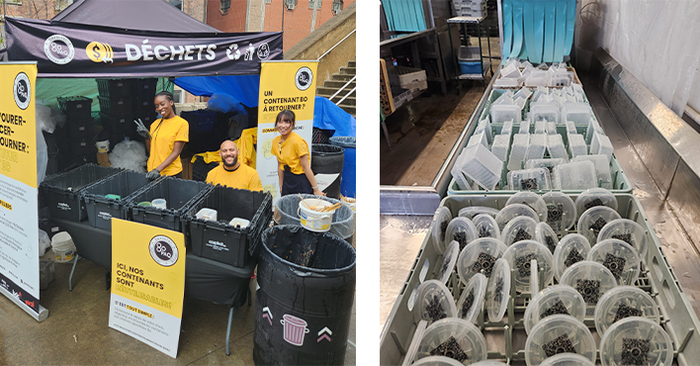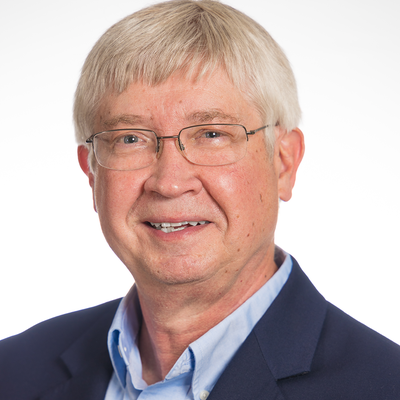Reusable Packaging: A Startup’s Startling Success
Bopaq unlocks the key to reusable packaging with a proven track record for more than a million containers in the challenging food and beverage market.

At a Glance
- Stacks of single-serve packaging inspired Mishel Wong to found Bopaq reusable food and beverage packaging
- Product line of clear polypropylene cups for drinks and food boxes can withstand 1,000-plus washes
- Optional app-based reward system incentivizes returns and promotes sustainability
Making the best of a bad situation is in Mishel Wong’s DNA as much as an entrepreneurial spirit.
That was made clear several years ago while working in Quebec for Servicelab Canada, a supplier of dining ware-washing equipment and products including soap for restaurants and related food service operations.
Then the pandemic hit and suddenly dining out turned to dining in at home, a sharp shift that swept through her sales area and across the globe. Restaurant reservations dried up along with her company’s main source of revenue.
“Almost overnight, no one was buying our soap as restaurants pivoted to takeout,” Wong recalls.
Why not ride the wave of change? Wong’s epiphany prompted her to lead the charge to offer single-use packaging.
“I researched conventional packaging and began to sell a limited selection to restaurants to generate revenue,” she says.
The tide would eventually change as the pandemic waned and, over time, restaurants gradually returned to pre-COVID operations.
It was during this time she had another epiphany, this one at a Servicelab warehouse that would build on that first realization.
“I was flabbergasted to see our 3,000 square-foot warehouse full of neatly stacked cases of disposable packaging,” Wong relates. “Those stacks are quickly sold and replaced by fresh stock weekly. Where is all this waste hiding? There must be a better way.”
There was, and Bopaq reusable packaging was born.
What’s in a name? For Bopaq reusable packaging, plenty.
The company's name points to circularity: the letters of “Bo” comprise the infinity symbol and a circle while “Paq” is a nod to the company’s packaging roots in French-speaking Quebec.
But there’s more to the name, Wong, president director-general, explains. As a bow to her heritage, she points that “Bo is also the Chinese word for ‘protect’ or ‘treasure’.”
While the thoughtful and clever name came quickly, bringing a new and specialized kind of packaging to life would take much more time, research, and development.
First, Wong had to select the ideal product type and material for takeout food and beverage packaging. Materials considered included glass, stainless steel, Tritan, a co-polyester from Eastman, and other polymers.

In the end, polypropylene was selected, due to attributes that seemed to tick most of the requirements for takeout containers, according to Wong: it’s highly durable yet lightweight, it’s microwavable, it has a wide temperature-of-use range, is readily recyclable, withstands industrial washing sanitizing, and is recyclable.
“Those are all important qualities for a practical food packaging alternative,” Wong says. “Our products are also BPA-free and FDA-approved.”
To meet regulatory requirements for reusable packaging, Bo Paq’s polypropylene containers are molded to be more robust versus single-serve packaging.
“The government mandated that reusable packaging must be engineered to be reused more than 100 times and withstand 100 washes through industrial ware-washing equipment at 180F sanitation while maintaining their integrity,” Wong explains. “Our products are designed to withstand more than 1,000 washes.�”
It was highly advantageous during research and development that the containers could be tested in Bopaq’s own ware-washing facility.
The researched and development resulted in a 3-product line of reusable containers for Canada: A 22-ounce clear cup for drinks available with an optional resealable, pop-on lid; and 16- and 38-ounce rectangular PP food boxes with a cover.
“We are also able to source other practical formats from manufacturing partners to complete our product offering depending on our partners' needs,” she adds. Two of those can be seen in the top feature image.
Single-use learnings adapted to reusable packaging.
Wong learned about the buying considerations of decision-makers in foodservice during the vetting process in procuring single-use packaging products to sell. Those learnings served her well in the sustainable upgrade to reusable packaging.
“Packaging for takeaway meals must first and foremost deliver the meal safely to the customer in a way consistent with the foodservice provider's brand image,” Wong explains. “It needs to be cost-efficient with a reasonable level of useful service in the sales process. Lastly, many decision-makers would ask about sustainability, which means different things to different people. There seems to be a great amount of eco-confusion among consumers and vendors. Both groups want to be sustainable, but most are not well informed on how to measure a product's environmental impact.
“Greenwashing by manufacturers and product distributors adds to the mistrust, making it challenging to establish that reuse is a better alternative than recyclable and compostable products. Also, facts vary based on jurisdiction and a particular infrastructure for waste management. The conclusion is that the normalization of reuse will fall largely on service providers like Bopaq to responsibly educate the public.”
‘App-propriate’ returnable reward system.
One of many challenges in a reusable packaging scheme is to ensure a high percentage of containers are returned. One of the solutions offered is an app-based program that incentivizes customers.
“Assigning value to reusable packaging products is an important way to optimize their return,” she points out.
Participating restaurants can allow users who have a Bopaq account to borrow containers for free or those without an account to check-out products by paying a deposit. Users then locate a place where returns are accepted and scan the returned container’s printed quick-response (QR) code using the app then deposit the container in the bin to remove the inventory from their account or to obtain a refund of their deposit.

BOPAQ
“The Bopaq team then receives a notification of the return in real-time and makes plans for collection and ware-washing based on the information,” Wong says.
She shares another application where Bopaq provided reusables for a major 2023 food festival in Montreal. As with most outdoor festivals, it’s a challenge for the organizers to reduce the amount of trash left behind.
“We replaced over 56,000 containers in 4 days,” Wong relates. “Vendors served food in our containers, charging a $2 CD deposit per article. Once clients finish eating, they sort their compostables/recyclables/trash at our three-bin return stations and drop off the reusable containers to the team at the return to obtain a full refund.
There was also a bonus of a remarkable societal benefit.
“Because we assigned value to the products, not only were clients incentivized to return their containers, but we had a homeless population in the area who actively cleaned up after clients who may not have understood the system or wanted to donate their deposit. These ‘volunteers’ returned customers’ containers to collect the deposit. As a result, the event reduced waste by 80% compared to the year before without reusables. Upon inspection, there were no Bopaq containers that ended up as litter. It was quite a coup that garnered some media attention.”

Bopaq packaging collected during an outdoor event was returned for sanitizing and reuse. BOPAQ
2024 looks promising for Bopaq, reusable packaging.
With those results along with the publicity, 2024 is already shaping up as a banner for the start-up company.
“We are booking major events through 2024 and have a lineup of service launches across major foodservice segments including restaurants, caterers, institutional cafeterias, and grocery stores,” says Wong. “We are raising a seed round to finance growth and establish ourselves as a dominant service provider for reusable food packaging in Canada.”
The company was also buoyed by the news released January 26 of the establishment of the National Wash Network by the four fastest-growing reusable packaging companies in Canada. Bopaq is one of the four.
“We’re leveraging our partners' distribution channels to expand beyond our borders in Quebec,” Wong discloses. “The objective is to show chain foodservice brands that reuse is not only a practical alternative to single-use packaging, but it's also scalable with local operators across Canada.
“Through this partnership, we maintain our respective brands, but can now offer collection/ware-washing services for national contracts from coast to coast, including the greater metro areas of Vancouver, Calgary, Toronto, and Montreal.”
And the final touch to Bopaq’s name and story? Beau is French for “beautiful.” For a growing number of others within packaging and without, circular sustainability through reusability is a beautiful thing.
About the Author(s)
You May Also Like




